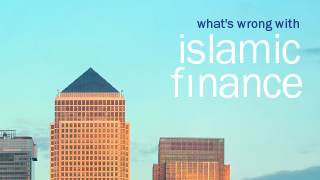New poll shows lack of support for Islamic finance
- |

In this piece, Tim Dieppe comments on a new poll of British Muslims, which highlights a lack of support for Islamic finance in the Muslim community.
Policy Exchange has published a report based on what is billed as the most extensive survey to-date of British Muslim opinion. One of the key findings of the report is the lack of support for Sharia-compliant finance in the Muslim community. Only 4% of respondents said they use sharia banking. This is a shockingly low number. It means that 96% of Muslims use conventional finance and therefore do not see the supposed ban on interest in the Qur'an as binding. A further 34% said they would 'prefer' to use sharia banking, though as the report notes, it is not clear whether this means that they would ‘prefer’ to use it if it was available, or if they would ‘prefer’ to use it in an abstract way. A clear majority of 55% said they prefer not to use sharia banking.
This ties in with surveys cited in our 'What’s wrong with Islamic finance?' booklet, which makes the point that Islamic finance is not supported by most Muslims. The Policy Exchange report quotes statements from some of the respondents criticising the viability and applicability of sharia banking. In particular, there are criticisms of the mortgage rates being higher for Islamic loans than for conventional mortgages. Of course, the fact that these rates are comparable shows that the Islamic mortgages are also interest-based in practice, if not in name. This is part of the deceptive nature of Islamic finance which pretends to be interest-free, but is actually based on interest. This also ties in with another criticism made in our booklet, namely that Islamic finance disadvantages Muslims through increased complexity and transaction costs. We would therefore expect comparable Islamic financial products to be more expensive than conventional financial products.
The Policy Exchange report notes that the majority of Muslims prefer not to use sharia banking and states:
"The latter is a striking statistic, given how much emphasis elements of the banking sector have placed on the provision of Sharia banking facilities. It is surely worth considering whether the huge investment of resources diverted to this sector is entirely warranted."
I entirely agree, and would add that the government should stop supporting and promoting Islamic finance in Britain for these reasons as well as the others outlined in our booklet.
Related links:
What's wrong with Islamic finance?
Unsettled Belonging: A survey of Britain's Muslim communities (Policy Exchange)
